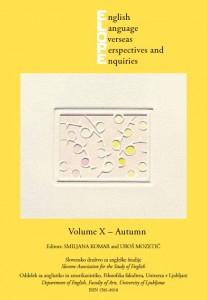Lists. Always a thrilling topic.
Make sure to order your lists clearly. If you mention “The works of Tolstoy, Chekhov, Dostoevsky, Hemingway, Faulkner and Woolf…,” you can arrange them:
1) alphabetically:
“The works of Chekhov, Dickens, Dostoevsky, Faulkner, Hemingway, Tolstoy and Woolf…”
2) chronologically (generally by date of birth):
“The works of Dickens, Dostoevsky, Tolstoy, Chekhov, Woolf, Faulkner and Hemingway…”
3) by language:
“In the works works of Dickens, Woolf, Faulkner and Hemingway, and of Dostoevsky, Tolstoy and Chekhov…”
(note the need to order things within the two language lists here).
If you order things in a funkier way, say what your logic is.
E.g. “These authors, ordered by zodiac sign and a predilection for fried food, include…”
Be sure to signal a change (as with “, and of…” in 3), just as this example does NOT:
“They need to stop occasionally and realize that the person was not just a challenging health case but a human being with fears, ailments, anxieties, relatives, and loved ones.”
There’s a comic ring to “anxieties, relatives, and loved ones.”
A potential solution: “…with fears, ailments, anxieties, WITH relatives, and loved ones.”
Without the change-signalling “with,” you risk creating a zeugma in the style of “I took my sister and a bag of chips to the party.”

